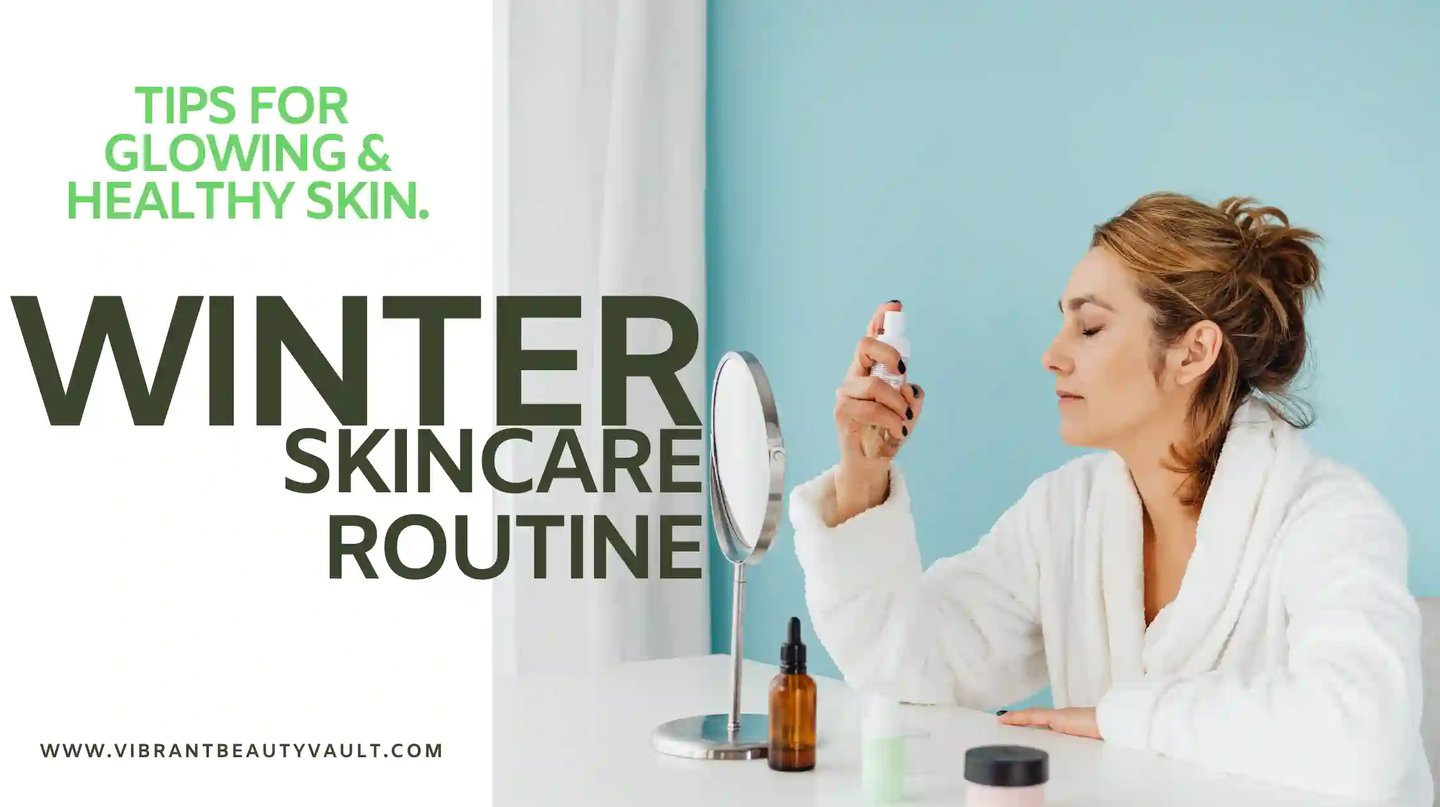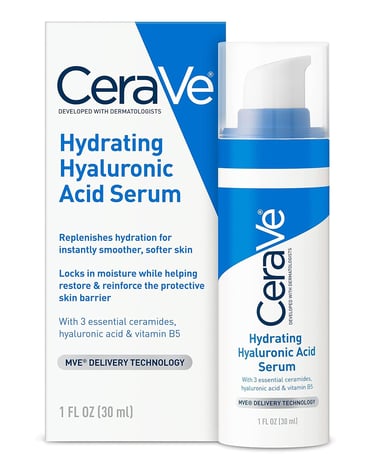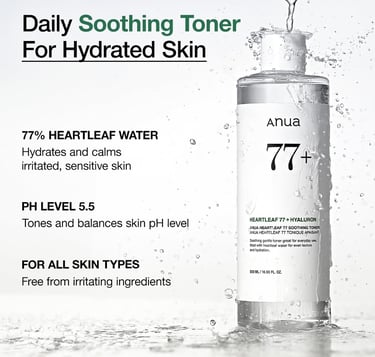Winter Skin Care Routine: Day and Night Time Tips for Glowing, Healthy Skin
SKIN CARE


Winter can be both a magical and harsh season for your skin. While the cold, crisp air, along with the occasional snowfall, might offer scenic beauty, the drop in temperature, low humidity, and indoor heating systems can wreak havoc on your skin. It’s during these months that our skin needs extra attention and care to maintain its hydration, softness, and overall health.
In this blog, we’ll break down the best winter skin care routine, dividing it into two segments: day and night. Each part of your daily routine plays a specific role in ensuring that your skin remains radiant, smooth, and nourished through the winter months.
Why Is Winter Skin Care Different from Other Seasons?
The main challenge during the winter is the lack of moisture in the air. The cold weather combined with indoor heating dries out the skin, leading to irritation, dryness, redness, and even cracks. The body’s natural oils are also less efficient at maintaining moisture when the air is dry, which is why your skin can feel tight and uncomfortable.
To fight these winter skin issues, it’s essential to adjust your routine to address these specific concerns. Let's dive into the ultimate winter skin care tips for both day and night.


Day time Winter Skin Care Routine
Start your morning routine with a gentle, hydrating cleanser. Unlike the summer months when you may opt for a foaming or deep-cleansing formula, in winter, your skin is already deprived of moisture. Therefore, using a cleanser with a moisturizing formula will prevent further dryness or irritation. Look for products that are free of harsh sulfates and alcohol, which can strip the skin of its natural oils.
Recommended Ingredients: Ceramides, glycerin, hyaluronic acid, and aloe vera.
What to Avoid: Strong exfoliating cleansers or those containing alcohol.
Tip: Use lukewarm water instead of hot water, as hot water can further dry out the skin.
2. Hydrating Toner or Essence
Toners in winter should be hydrating and not astringent. A hydrating toner or essence helps replenish lost moisture and balances the skin’s pH level after cleansing. Look for products that contain ingredients like glycerin, hyaluronic acid, or rose water.
Recommended Ingredients: Hyaluronic acid, glycerin, rose water, aloe vera, and vitamin B5.
What to Avoid: Alcohol-based toners.
Tip: If you don’t use a toner, consider adding a hydrating essence to your routine. It provides an extra layer of moisture that will help lock in hydration.
3. Moisturizer
Moisturizing is key in the winter. A rich, nourishing moisturizer creates a barrier to lock in moisture, preventing the skin from drying out throughout the day. In the winter months, opt for a thicker moisturizer compared to the lightweight lotions used in warmer months.
Recommended Ingredients: Ceramides, shea butter, squalane, peptides, and hyaluronic acid.
What to Avoid: Gel-based or oil-free moisturizers, as they tend to be too light for dry winter skin.
Tip: If you’re in an area with especially dry conditions, consider using an occlusive product like a balm or an oil on top of your moisturizer to further seal in hydration.
4. Sunscreen
Even during the winter, sunscreen is essential. Snow can reflect up to 80% of UV rays, meaning your skin is still exposed to harmful UV radiation. Use a broad-spectrum sunscreen with an SPF of 30 or higher, and reapply every two hours if you're spending time outdoors.
Recommended Ingredients: Zinc oxide, titanium dioxide, and broad-spectrum UVA/UVB filters.
What to Avoid: Sunscreens with a high alcohol content, as they can be drying.
Tip: You can also look for moisturizers that contain SPF for an added layer of protection.
5. Lip Care
The lips are particularly vulnerable to dryness and chapping during the winter months. Use a hydrating lip balm throughout the day to keep your lips soft and smooth.
Recommended Ingredients: Beeswax, shea butter, lanolin, and vitamin E.
What to Avoid: Lip balms with fragrances or artificial dyes that can irritate sensitive skin.
Tip: For extra protection, apply a thicker layer of balm before going outside in cold weather.
Skin Care Routine Winter Night
Nighttime is when your skin can repair itself, so it’s important to nourish it with products that will lock in moisture and provide additional hydration while you sleep.
1. Double Cleansing (If Necessary)
If you wear makeup or sunscreen, double cleansing can be beneficial to thoroughly remove dirt, oil, and impurities from your skin. Start with an oil-based cleanser to dissolve makeup and sunscreen, followed by a hydrating water-based cleanser to cleanse the skin.
Recommended Ingredients for Oil Cleanser: Jojoba oil, squalane, or grapeseed oil.
Recommended Ingredients for Water-Based Cleanser: Ceramides, glycerin, or chamomile extract.
Tip: Double cleansing can help ensure that your pores are completely clean and free of makeup residue, which can contribute to breakouts in the winter.
2. Exfoliate (1-2 Times a Week)
Exfoliating in winter should be done gently to avoid stripping the skin’s moisture. Look for chemical exfoliants (AHA or BHA) rather than physical scrubs, as they are more effective and less abrasive.
Recommended Ingredients: Lactic acid, glycolic acid, or salicylic acid (for oily skin).
What to Avoid: Harsh physical exfoliants like scrubs with large granules, which can damage the skin.
Tip: Over-exfoliating can lead to increased dryness, so limit this step to once or twice a week.
3. Hydrating Serum
A hydrating serum will help replenish moisture and repair the skin overnight. Serums with ingredients like hyaluronic acid, peptides, or vitamin C (if you’re looking for an added boost of radiance) can deeply hydrate the skin.
Recommended Ingredients: Hyaluronic acid, peptides, vitamin C, or niacinamide.
What to Avoid: Serums with a high concentration of alcohol or acids that can make the skin more sensitive.
Tip: Use a thicker serum at night, especially if you’re prone to dry skin, as it will stay on longer and provide a longer-lasting hydrating effect.


4. Moisturizer (Rich and Nourishing)
As with the daytime, it’s crucial to moisturize at night. In winter, use a heavier moisturizer than you might use in the summer. Look for thick creams or oils that will create a barrier to prevent water loss while you sleep.
Recommended Ingredients: Shea butter, squalene, ceramides, avocado oil, and jojoba oil.
What to Avoid: Lightweight gel moisturizers that may not be nourishing enough.
Tip: If your skin feels especially dry, apply a nourishing sleeping mask or oil as the final step in your routine for extra hydration.
5. Eye Cream (Optional)
The delicate skin around your eyes needs extra care during winter. If you have concerns about puffiness, dark circles, or fine lines, use an eye cream that offers hydration and treatment benefits.
Recommended Ingredients: Caffeine, hyaluronic acid, peptides, and vitamin E.
What to Avoid: Heavy creams that may cause milia (small, white bumps around the eyes).
Tip: Gently tap the eye cream with your ring finger, as it applies the least pressure and is less likely to irritate the skin.
6. Facial Oil
While facial oils may seem unnecessary in warmer months, they can be incredibly beneficial during winter. Oils are excellent for sealing in moisture and adding an extra layer of protection against the cold, dry air. If your skin tends to be particularly dry, adding a nourishing oil can make a huge difference.
Best Oils to Look For:
Jojoba Oil: Mimics the skin’s natural sebum, providing deep hydration.
Argan Oil: Rich in essential fatty acids, it helps moisturize and protect the skin.
Rosehip Oil: Packed with vitamins A and C, it helps with skin regeneration and brightening.
What to Avoid:
Oils with artificial fragrances or those that may cause breakouts.
Tip: Apply a few drops of facial oil after your moisturizer for an added layer of protection and hydration.
7. Lip Care
Before heading to bed, apply a thicker lip balm to lock in moisture overnight. You can even layer it with a small amount of honey, which is a natural humectant.
Final Winter Skin Care Tips
Humidify: Use a humidifier in your home to add moisture to the air and help prevent your skin from drying out.
Hydrate Internally: Drink plenty of water, even when it’s cold outside. Proper hydration helps your skin stay healthy and plump.
Avoid Hot Showers: Although it feels great, hot water strips your skin of moisture. Keep showers lukewarm and try to limit their duration.
By adjusting your skincare routine to incorporate more hydration and gentle ingredients, you can keep your skin nourished, soft, and glowing even through the coldest months. Happy winter skincare!












